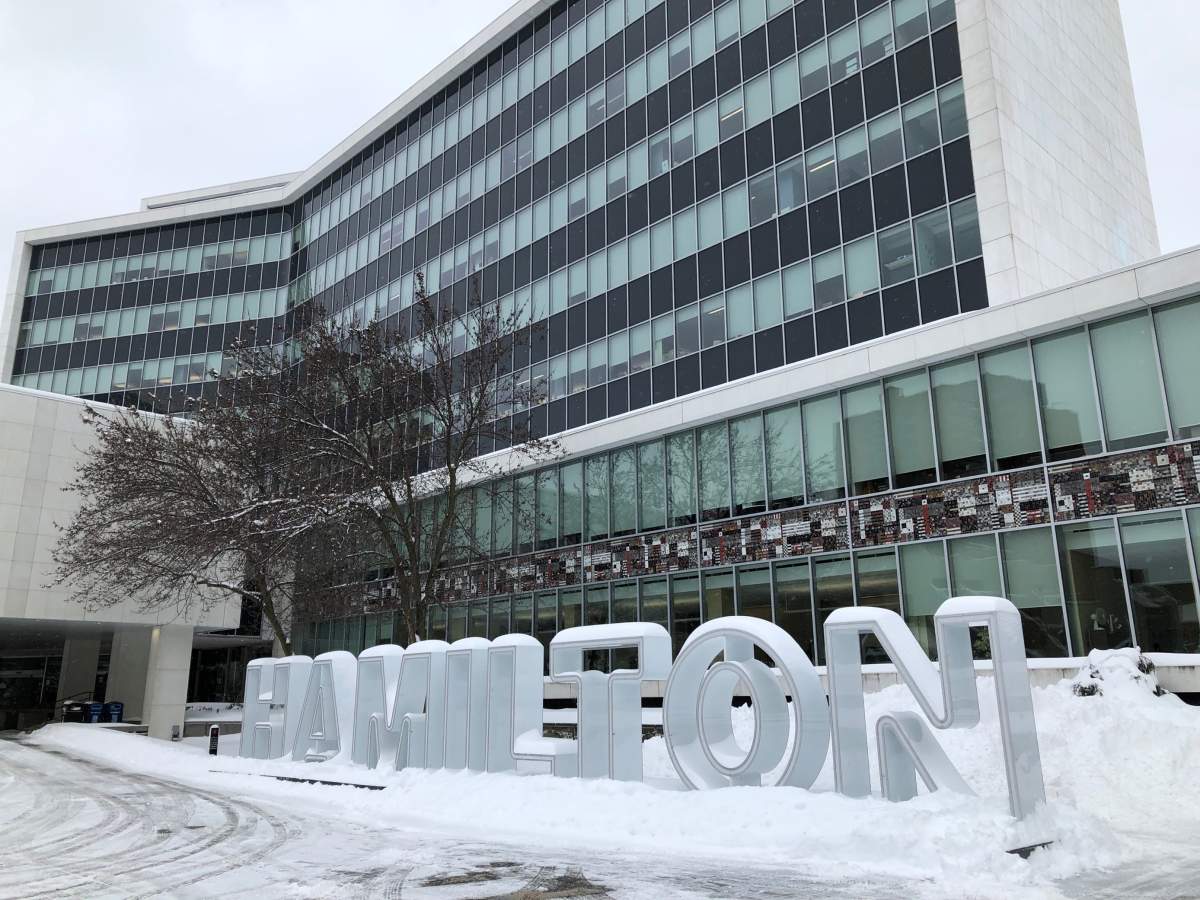Hamilton councillors were able to whittle down this year’s residential tax increase to 5.79 per cent just months after the city’s finance and corporate services division presented a potential increase almost double that number.

Amid challenges in areas related to inflation, housing, climate change and so-called “downloading” from the provincial and federal governments, bean counters were to pare down to an estimated annual average increase of roughly $280 per household.
A 10-6 council vote gave the go-ahead for the 2024 budget, which included Mayor Andrea Horwath‘s approval despite acknowledging the costs are high amid tough times for many residents.
“I think we’ve done our best to really strike that balance in this budget,” Horwath told councillors.
“I think everybody would wish the numbers were lower, but they can’t be lower when we look at what the investments that we need to make are.”
The bump is similar to a number council approved for 2023, which checked in a 5.8 per cent for a $260 average residential property increase.
Supporter Craig Cassar, coun. for Ward 12, similarly acknowledged the tough times but insisted council must invest in needed services, including its response to the homelessness crisis.
“Everyone I talked to does not want to see people on the street, whether it’s from a compassionate point of view or not so compassionate point of view,” he said.

Get breaking National news
“Everyone wants to solve that. That’s what we’re doing. We’re investing to solve that problem.”
Meanwhile Ward 5 coun. Matt Francis cited the high cost of living as the reason for his no vote.
“This is yet again a record tax hike that Hamiltonians simply cannot afford, and this is an irresponsible budget,” said Francis.
“I will never support these massive tax increases and record spending.”
Councillors also gave final approval to this year’s contentious $207-million police budget through a similar 10-6 vote.
Going into discussions this week, city finance put the net tax levy at about $728.8 million compared with 2023, an increase of $64.9 million year over year.
Initial forecasts presented by the city’s general manager of finance Mike Zegarac in September 2023 put down a 14.2 per cent levy, highlighting some four per cent required to mitigate housing issues, including coverage of development charge exemptions and other legislated impacts from Ontario’s Bill 23.
At the time, it equated to some $30 million in investments for Hamilton’s housing and homelessness strategy, which has been aggravated by the absence of COVID-19 relief funds from the other two levels of government.
In the end, the increase for new investments in housing and homelessness will be 1.6 per cent.
About 2.55 per cent of the property tax increase will cover off the provincial development charge shifts while city services will account for a 1.64 per cent.
Reserves from budget surpluses will be utilized to keep the tax rate low since the city is expected to incur a 19.5 per cent increase in new spending for 2024.
Horwath says the “tool” was something needed to lessen the impact on residents and to keep the city’s triple-A S&P Global credit rating – allowing for ideal terms should the municipality seek loans.
“I made it very clear I don’t want to have any impact on our, rating,” Horwath explained.
“I want to make sure that it’s a sustainable situation … not only are we losing some reserves over the next couple of years, but we are also replenishing reserves.”
Hamilton’s levy is generally middle of the pack compared with neighbouring Ontario municipalities.
Burlington will see a 6.68 per cent tax increase in 2024, Toronto 9.5 per cent, Mississauga 6.8 and Guelph 8.52 per cent.
Hamilton councillors who voted in favour of the 2024 levy were: Maureen Wilson (Ward 1), Cameron Kroetsch (Ward 2), Nrinder Nann (Ward 3), Tammy Hwang (Ward 4), Esther Pauls (Ward 7), John-Paul Danko (Ward 8), Craig Cassar (Ward 12), A. Wilson (Ward 13) and Ted McMeekin (Ward 15).
Naysayers were Matt Francis (Ward 5), Tom Jackson (Ward 6), Brad Clark (Ward 9), Jeff Beattie (Ward 10), Mark Tadeson (Ward 11) and Mike Spadafora (Ward 14).
The same councillors voted for and against the similar 5.8 per cent tax hike last year.









Comments